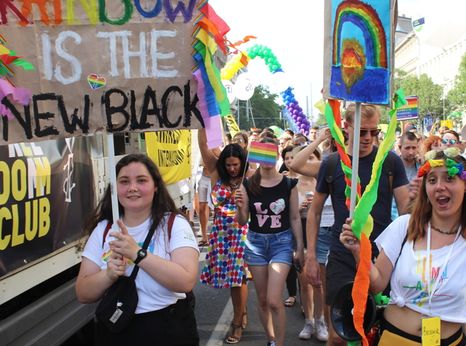Woman detained because of discrimination laws

On 10 March, 33-year old Domoina was sent to pre-trial detention in Madagascar’s capital city’s prison, Antanimora. As exposed in Amnesty International’s 2018 report ‘Punished for Being Poor: Excessive, Unjustified and Prolonged Pre-trial Detention in Madagascar’, conditions of detention in Madagascar are inhumane, because of an excessive and prolonged use of pre-trial detention, which has in turn resulted in severe overcrowding across the country.
The charges brought against Domoina are that of ‘corruption of minors under 21 years old’, as she is accused of having a (consensual) relationship with her 19-year old girlfriend, Fyh. In Madagascar, the criminal code in its Article 331 punishes with up to five years imprisonment ‘anyone who has committed an indecent or unnatural act with a minor of their own sex, less than 21 years old’. Fyh and Domoina had decided to move in together, a decision which Fyh’s mother disapproved of, leading her to report Domoina to the police under this provision.
In an interview with Amnesty International, Domoina’s girlfriend, Fyh, explained that she was raped by her father and grandfather, from the age 6 to 16, during which she had to undergo two abortions (also criminalized by Malagasy law). After meeting Domoina and sharing her problems with her, Fyh finally found the courage to sue her father, and this is when her relationship with her mother became strenuous, as her mother accused her of destroying the family unity. Fyh believes the lawsuit is driven by her mother seeking to take revenge by attacking her girlfriend.
Because of the threat of COVID-19, Domoina was told that she can no longer receive visits from her lawyer or relatives, and that her trial, initially scheduled for 10 April, has been postponed to an undetermined date. As exposed by Amnesty International’s previous research, the government of Madagascar abusively uses pre-trial detention, constraining detainees to live in unhygienic and overcrowded conditions, and with the new threat of COVID-19, pre-trial detainees will have to wait for their trials for even longer periods, while risking falling sick.